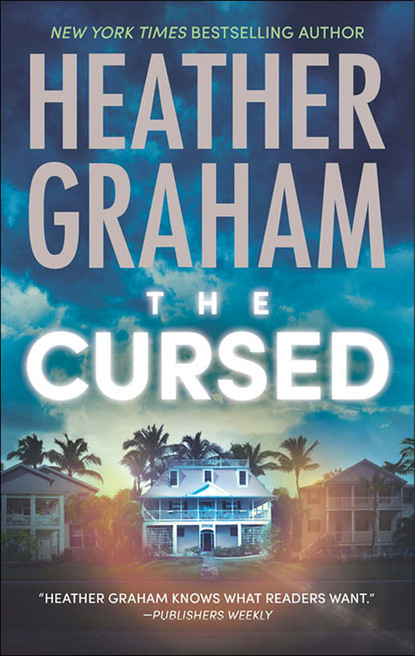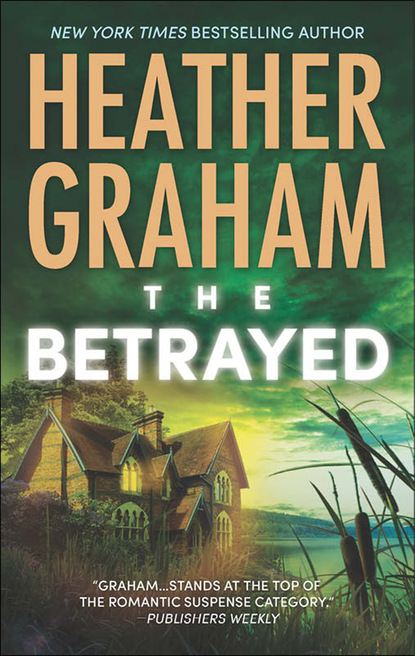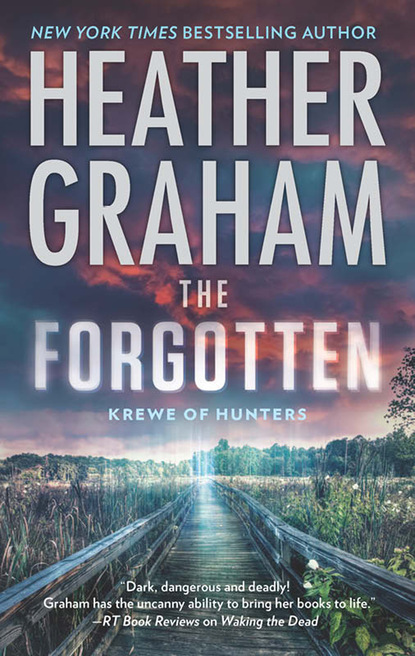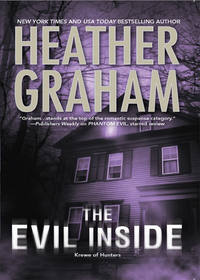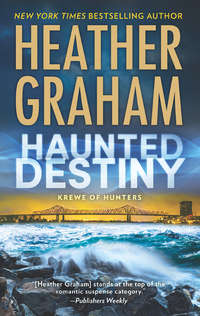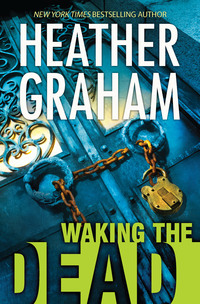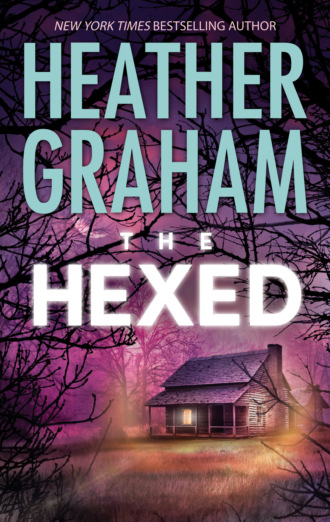
Полная версия
The Hexed
“Hey!” Beth said, rising to greet Devin with a hug. Beth was about five-eight but so slim she appeared small. Even with Devin being an inch taller at five-nine, they had to stretch over the counter to greet each other.
“Glad to see you,” Beth said. “I mean...now. I’m always glad to see you.” Her verbal confusion was a frequent result of her effervescent sincerity. “I have to tell you—I sold out of the last batch of your books in two days. Of course, it’s summer and this town is teeming with kids. But still....”
“That’s great,” Devin said. “I’m impressed—and flattered.”
“Anyway, if you happen to have any extras, can you bring them by?” Beth asked her. “I’ve ordered more, but I could use a few to tide me over.”
“I’ll bring my author’s copies.”
“Great, thanks.”
Devin looked in the display case by the counter as they talked. She wasn’t really much for costly jewelry—diamonds, platinum, elegant pieces—but she loved artistic costume jewelry. Silver. And, okay, sometimes silver with stones.
“Wow!” she said, and looked up at Beth.
“You’re looking at the Sheena Marston series, right?” Beth asked.
“They’re gorgeous pieces, aren’t they?” came another voice.
Devin looked up. Theo Hastings, one of Beth’s employees and mediums, had come from the back. He waved at the young women to whom he’d been giving a reading and smiled at Devin. He was about forty, devilishly handsome and great at his work. He was a practicing Wiccan—though Devin suspected that he was “practicing” more because it was good for his image and his work than because he believed the way Beth did. He had the right look, with dark hair that fell to his shoulders and was highlighted with just a touch of gray, dark eyes and perfectly sculpted features. And of course, he always wore black suits that hinted at the 1800s without being costume pieces. He was always nice, but she hadn’t known him all that long, and he wasn’t an open book like Beth, so Devin always kept a little distance.
“Take that one,” he said, pointing to a gorgeous silver medallion hanging from a delicate chain, a pentagram entwined with enamel glass-green leaves and tiny stones. “Beautiful—truly beautiful. So many people come in here thinking that the pentagram is evil, but it isn’t. It even symbolizes the Freemasons, who do a lot of good things and fall under suspicion, too. Pentagrams were important religious symbols for the Babylonians, and they were also used in ancient Greece. Christians have even used the pentagram to represent the five wounds of Christ. It’s no different than the cross or the Star of David or any religious symbol. How do people get these things in their minds...?”
His voice trailed off as he shook his head.
“Hey, you’re asking that question in a place where ‘spectral’ evidence was considered proof of guilt,” Devin reminded him.
“Amazing, right?” Beth asked. “A kid said she was being pinched by the astral projection of some poor old woman, and people believed her.”
“Different times,” Devin murmured. “And sometimes I’m not so sure we’ve evolved very far. Look at the prejudices we still practice.”
“Hey, not me,” Beth protested. “I love everyone.”
Devin laughed. “And everyone loves you. I mean, as a species, we can still be pretty wretched. You can make prosecuting witches illegal, and we can enact laws against discrimination, but that doesn’t mean we can change the human mind.”
“Well said,” Theo told her. “But to get back to what’s important, you should buy that piece. Your hair is so dark, a perfect contrast to the silver, and your eyes are such a deep blue—like the sapphires. It practically screams your name, Devin.”
“It is gorgeous,” she agreed. “I may.”
“It really does scream your name,” Beth agreed. “You have the perfect creamy skin for it, too. I’ll wrap it up.”
“Hey, thanks for the compliments, but I don’t even know what it costs,” Devin said, laughing.
“Not that much, really. Just bring me your books—if you have a box, we’ll wind up about even.”
Devin laughed again. “Okay, done deal.”
Beth took out the medallion and put it in a small box.
“Well, I’ve got to get back to writing. I just came out to buy birdseed—which I still have to do—and wound up walking around,” Devin said. “Seems like every time I look, something’s closed and something new has opened.”
“And we grow more commercial every year,” Theo said sadly.
“It’s a commercial world,” Devin said lightly. “They want you to pay your power bill no matter what.”
Beth put the box in a decorative bag and handed it to Devin. “So how are you doing with that wretched old bird?”
“Poe?” Devin asked.
“Other people are left cats and dogs—and your great-aunt left you a raven!” Beth said, shaking her head. “You know, I watched him until you came home after your aunt Mina died.”
“I do, and I’m grateful,” Devin assured her. “He’s doing just fine.”
“How the hell long do those birds live?” Beth asked.
“I think they can get to be about twenty in captivity. Aunt Mina rescued him when he was a baby, so I’d say he’s about twelve now,” Devin said. “He’s a very cool bird. I like having company. I mean, it’s not that the cottage is so far out of town, but it seems like there are a lot of woods out there.”
“You need a cat,” Beth said.
“Or a dog,” Theo suggested.
“For the moment, I have Poe,” Devin said.
Theo set a hand on hers. “It’s been nice to see you. We’ll all have to go to dinner one night.”
“Sure,” Devin said, smiling and quickly extracting her hand. “See you all later.”
Her car was in the public garage off Essex, and she hurried to it. It wasn’t a long drive down Broad and out to her cottage, but it did involve avoiding crowds of jaywalking tourists.
Parking, she studied her “cottage in the woods.” Technically, it was an old house, but it did have the white-walled, thatched-roof look of a cottage, and she was surrounded by a small forest of trees. When she had the fire going and smoke was drifting out of the chimney, it did look as if she lived in a home that belonged in a fairy tale.
As she opened the door and stepped in, Devin found herself smiling. Poe immediately let out a loud squawk. Unlike Poe’s raven, this bird didn’t say “nevermore.” He only squawked. But he liked to sit on his perch and watch her. Sometimes—though he was nowhere near as attached to her as he had been to Aunt Mina—he would even sit on her shoulder. She didn’t mind; Aunt Mina had trained him. He kept his droppings discreetly deposited in his cage onto newspaper that was easy to replace.
“Hey, buddy,” she said, putting down her packages and walking over to the bird. She stroked his head through the bars the way he liked. “Got your birdseed. All is well.”
His cage was near the mantel, so she set the bag of birdseed on top while she fed him. When she was finished, she stepped back and smiled, thinking that it was time to make some changes. But it was hard. She’d spent so much of her childhood here in the cottage. Her parents had traveled frequently for work, and since Devin had loved Aunt Mina and her aunt had loved her, it had made sense for her to stay here.
She’d loved how different Aunt Mina was from her own parents and everybody else’s—that she collected unusual and beautiful things. Once, in school, Brent Corbin had told her that if she’d just add a few more wacky family members she could join the cast of The Addams Family.
That was okay. She’d grown up with love, both here in Auntie Mina’s cottage and in the house her parents had owned—and still owned, actually—an old Victorian near the wharf and the House of the Seven Gables. It had been rented out for years now, and it was completely different from the way she remembered it. While the cottage...
Despite the years, little had changed here.
Devin opened the box holding her beautiful new silver medallion and hung it around the neck of a marble bust of Madame Tussaud that sat on a pedestal near the fireplace. The bust had been made from a life mask of the tiny woman who had created so many wax images, including death masks of some of the victims of the guillotine. Aunt Mina had loved the woman because she had been so talented—and such a survivor. The pentagram suited her marble neck.
“Guess I should get to work, huh?” Devin asked the bird.
He was too busy eating to reply.
She booted up the computer. The world seemed silent. Too silent. She turned on iTunes and set the music to play randomly.
For long minutes she actually concentrated.
Then she heard the crying.
It was soft and heart-wrenching—so soft, she wasn’t sure at first that she was really hearing anything at all. Next she thought it might have been part of the song that was playing.
But then a Bon Jovi hit came on, and she knew there was no soft sobbing in that hard-hitting rock song.
She muted the volume and listened. She was certain she heard it again. Very strange, since her nearest neighbor was a quarter of a mile away.
She walked to the door and opened it—and thought she saw a woman in white disappearing into the trees.
“Hello?” she called out. “Can I help you?”
There was no answer. The leaves rustled as the breeze picked up, nothing more.
“Please, do you need help?” She stepped out onto the stone path that led from her house to the road.
No answer.
Because no one was out there, she told herself.
She turned and looked back at the bird. Poe was still playing with his seed, unconcerned.
And of course, the idea that there was anyone out there had almost certainly come from the fact that she’d spent half her childhood, her most impressionable years, growing up with Aunt Mina. Not that her aunt had been crazy—unless being delightfully full of fun and life could be called crazy. But Aunt Mina had been forever telling stories—stories about leprechauns and banshees and forest folk, and the arguments that went on between the tooth fairy and Santa’s elves.
Devin walked back in the house, trying to forget the sound of sobbing and give her attention back to Auntie Pim and the Belligerent Gnome.
It was wonderful that her books had sold out, she thought.
Thanks to her aunt, she not only had a wonderful place to live but she’d found her true vocation. She’d done her duty as a junior reporter, but when Aunt Mina had suggested she try children’s stories, she had sat down and written one. She’d set her sights on reaching ten-year-olds—the age she’d been when Aunt Mina had first enchanted her.
Auntie Mina had been a practicing Wiccan. Her garden—while now in need of a woeful amount of care—was filled with a wide selection of herbs. Long before it had been popular to be Wiccan in Salem, Auntie Mina had been a healer and devotee of the old religion. While some in town mocked her, others came to her for advice, and with their aches and pains.
Devin’s parents were good Anglicans, but they were also a pair of hippies and were all for everyone believing as they felt they should, so they’d respected Aunt Mina’s religion. According to Devin’s father, “There are real Wiccans, and they’re just as decent as everyone else—or not. And then there are commercial Wiccans. You know—those people who come to Salem and open shops and claim to be Wiccans for a living. Hey, who’s to judge? Your aunt helps everyone, whatever their beliefs. In my opinion, like she says, it doesn’t much matter what we call the path or the light at the end of that path as long as we’re good people while we walk it, doing our best to help our fellow travelers.”
Devin loved her parents. When she’d left for school, they’d rented out their old home off Front Street and moved west to enjoy the mountains and sunshine of Boulder, Colorado.
Her own cottage was small but charming. It dated back to the early 1700s. There were just six rooms, all on the ground floor, with the parlor having a grand stone fireplace and old, unfinished woodwork all around. The room was decorated with Aunt Mina’s various treasures: crystal balls, elf-shaped incense holders, gargoyles, raven bookends, a pair of medieval mirrors—the bust of Madame Tussaud, of course—and all sorts of other items suited to a slightly crazy but very sweet Wiccan.
Devin’s first book, Auntie Pim and the Gregarious Ghost, sat nicely in the shelf alongside her second book, Auntie Pim and Marvelous Martian, contained between the raven bookends.
Looking at the books, she was glad that Aunt Mina had lived to see the first one published. She’d been so proud. Thinking of her aunt made Devin smile. She couldn’t be too sad—Aunt Mina had died at the grand old age of one hundred and one. She’d enjoyed great health until the night she’d said she was tired, sat in the old maple rocker before the fire and simply died. Devin had still been working for the paper at the time, but her mom had come for a visit because Aunt Mina had called her. Aunt Mina hadn’t been alone. Devin was glad about that, too.
Sometimes Devin thought she saw her aunt peeking out at her from around a corner with a mischievous smile.
But then, thanks to Aunt Mina, she’d thought she’d seen the dead before. That was because she really did owe everything to Auntie Mina, who’d been the best storyteller ever. When she had taken Devin to the Howard Street Cemetery where old Giles Corey had been pressed to death and told his story, Devin could have sworn that she saw the old man standing among the tombs, leaning on a cane, his expression thoughtful as the breeze rushed through his thin gray hair.
Auntie Mina had often told her with a wink that it was possible to speak with the dead—but only when the dead wished to speak. And of course, she’d added, with another wink, only special people received the talent to see through time and space, and hear the dead when they spoke.
“The books are doing so well, Auntie Mina,” she said aloud. “They’re really your books, you know.”
It helped, of course, that she worked with a wonderful artist, Drew Wicker, who lived in nearby Marblehead.
She sat back down at her computer, but just as she got comfortable, the sound came again. It was a woman crying. Definitely.
“Poe, is that you?” she demanded aloud, even though she knew the crying was coming from somewhere farther away.
The bird, as if indignant, looked up, cocked his head and squawked in protest.
“Okay, that’s it—no way I can concentrate now,” she murmured to herself.
She started out of the house again and then remembered that while she considered her neighborhood safe, bad things did happen. They’d found a murdered woman just two weeks ago in Swampscott.
Most of the details had been kept out of the paper, but she knew the woman had been young. Maybe in her early twenties.
Something itched at her memory. And then she recalled the incident that had been nagging at her.
It had taken place a little more than a decade ago. And it hadn’t been in Salem; it had been in Peabody or Marblehead or somewhere. A high school girl had been found murdered in the woods.
The details had been kept out of the paper then just as they had been now—the newest victim’s name hadn’t been revealed yet—but she knew one factor both women had in common.
Both women’s throats had been slit.
Surely, it was impossible that the two incidents could be related, not with so many years in between.
“Okay, Poe, freaking myself out here, huh?” she said aloud.
It was only about nine at night, and since they were on daylight savings time, there was still a little glow of light in the sky.
“It’s still light out, for heaven’s sake,” she said.
Poe squawked.
“Maybe I do need a dog. A large one,” she murmured.
Poe protested again.
“Okay...”
She looked around and then headed into the bedroom and grabbed one of her old hockey sticks out of the closet and started out. “No sense in being stupid. I can wield a wicked hockey stick.”
She heard the sobbing again. It was coming from the trees to the west of her house, from the little stand of trees that separated her from her neighbor.
“Please, I’m trying to help you,” she said softly. “Hello? Are you lost? Are you hurt? If you’ll just let me help you...”
She walked into the trees, then began to question her own wisdom.
The sky was darkening. Beneath the trees the light was all but gone.
She tightened her grip on her hockey stick.
And then she saw her.
She was young, a slight blond woman, wearing a black dress and a shawl that looked to be of the Puritan period. She was peeking out from between two trees.
There was nothing unusual about her outfit. This was, after all, Salem.
“Hey, there you are. I don’t know what’s wrong, but you can come in and we can call someone—someone to come get you. Someone who can help,” Devin said.
The young woman looked at her with enormous brown eyes. She shook her head and began to sob again.
And then she disappeared into the trees.
The woman might have been twenty or twenty-one—or she might have been a teenager—but she certainly didn’t look dangerous. Determined to help her, Devin headed back to her cottage and swept the electric lantern off the mantel. She hurried back out, turning the light on as she went.
“I’m not leaving you out here!” she called. “Come on, speak to me, please.”
She headed toward the spot where she had first seen the woman. She didn’t hear sobbing anymore, but the woman couldn’t have gone far.
Maybe she was a foreign tourist who didn’t speak any English and had gotten lost.
Maybe she’d been on a date or gone out with friends who had decided it would be fun to explore the old cemetery down the road from Devin’s cottage, and she had gotten lost and ended up terrified.
Maybe some jerk had just driven her out here and dumped her.
Or maybe...
Devin let out a shocked, ear-piercing scream.
The woman lay in a tiny open area between several large trees with gnarled branches. She was faceup, arms and legs outstretched, so her body resembled the design of a pentagram.
Her sightless eyes stared up into the darkness of the night. On her chest was a silver chain with a medallion.
Much like the silver pentagram she herself had just purchased.
But that seemed like nothing.
Because...
Around her throat...
There was a ribbon of blood.
2
The road was dark. The day had been long, but when it had finally ended the night had gone almost stygian. There was a moon, but it was hidden behind billowing clouds that promised summer rain for the northeast.
Rocky nearly hit the woman who ran out into the middle of the road.
His lights caught her, and for a moment he thought he’d entered some kind of nightmare region in his mind. She stood like an ancient icon in the glare, but was she goddess or demon? No matter what, she was beautiful, like an elemental force emerging from the darkness. She wielded something in her hands as she forced him to stop. A scepter?
No. A hockey stick.
Rocky quickly turned the car off, leaving the lights on, and stepped out. He was never unarmed, but he didn’t pull his Glock from the holster at his side. He lifted his hands to show her he meant no harm.
She was tall, and the dress swirling around her in the rain-scented breeze made her appear especially regal and elegant. She had long black hair that whipped around her face. It was almost like seeing the perfectly fashioned heroine of a video game come to life. There was no way any healthy male could ignore her presence. She aroused every fantasy his mind had ever come up with, and she drew on every ounce of lust that coursed through his body.
He quashed the wanderings of his mind, reminding himself that she was clearly in trouble. This was no fantasy. They were standing in the middle of the road in the dark, with a storm on the way.
“Are you all right?” he demanded.
“I’m fine, but...phone. Do you have a phone? Call 9-1-1, please!”
“What’s your emergency? I can help you if you’ll just tell—”
“Dammit, are you stupid? I don’t need help! Dial 9-1-1—there’s a dead woman in the woods!”
He dialed. Then, slowly and precisely, he identified himself and their location—and the situation.
“Did you discover the body, sir?” the operator asked.
“No—I was stopped on the road by the woman who did.” He looked at Devin. “Who are you?” he asked.
“What?”
“Your name. They need to know who discovered the body.”
“Devin. Devin Lyle.”
“Devin Lyle found her,” he said into the phone. “Please send someone.” He knew the operator would keep him talking while the police were dispatched and he needed to find out what was going on, so he hung up.
“Where?” he asked Devin Lyle.
She pointed toward the woods. “But...but don’t go in there. The cops...they’ll want the crime scene intact, right?”
“Ma’am, I’m an FBI agent. Are you sure she’s dead?”
“Yes.”
“Did you try CPR or just take her pulse?”
“Sir, she’s dead.”
“Agent,” Rocky said by rote. “Agent Rockwell. Do you have any kind of medical training? Are you certain that she’s dead?”
“No,” she said. “And yes, I’m sure.”
“Where is she?”
Devin Lyle’s finger rose, and she pointed.
Rocky hurried through the trees.
And found the victim.
She wasn’t far from the road; there was a break in the trees, and there she was.
For a moment he forgot his years of training and fieldwork. He simply froze. Body...and soul.
It was déjà vu.
She was lying just like Melissa had lain, limbs and head creating the five points of a star.
And on her breast lay...
A silver medallion. A pentagram.
Around her throat...
A red ribbon of blood.
He didn’t move to her side, only stood rigidly and stared.
Devin Lyle came up behind him. He suspected she thought he was being respectful of the dead woman.
That wasn’t it, though. He was simply frozen by his memories.
“Are you going to try to revive her?” she asked quietly, only a small note of irony in her tone.
He could hear sirens; the police were on the way.
He turned to face the dark-haired woman who had stopped him. “When did you find her?”
“Seconds before I stopped you.”
“How did you find her?”
She pointed. “My home is just there—on the other side of the trees.”
“How did you know to look for her here in the dark? Did you hear something? Did she cry out?”
“Yes, I—I don’t know what exactly. I heard something. Sobbing—a cry. Something.”
He broke his paralysis and moved forward carefully, hunkering down to set two fingers on the flesh of the woman’s wrist. She was cold. She’d been here awhile.
No attempt at resuscitation would have helped.
Her eyes had been green, her hair a soft brunette. She was clad in a simple halter dress and light sweater. At least the dress was pulled down decently, almost tucked between her outstretched legs.
He heard car doors slamming. The cops had arrived.
“Hey!” he said loudly, so he could be heard. “In here!”
A moment later two uniformed officers came through the trees and into the little clearing. They were competent and compassionate at the same time, the first checking the victim and securing the scene, the second speaking with Rocky and Devin Lyle. It was while they were in the midst of the conversation that more sirens sounded, and Rocky was surprised to look up and see that a third officer, this one in plain clothes, was coming his way.
He was even more surprised to realize that he knew the man.
“Hell, Rocky—you’re back in town?” the newcomer demanded.
“Jack Grail,” Rocky said, shaking Jack’s hand. “And you’re still here.” He grinned; it had been a good ten years since he’d seen Jack.


